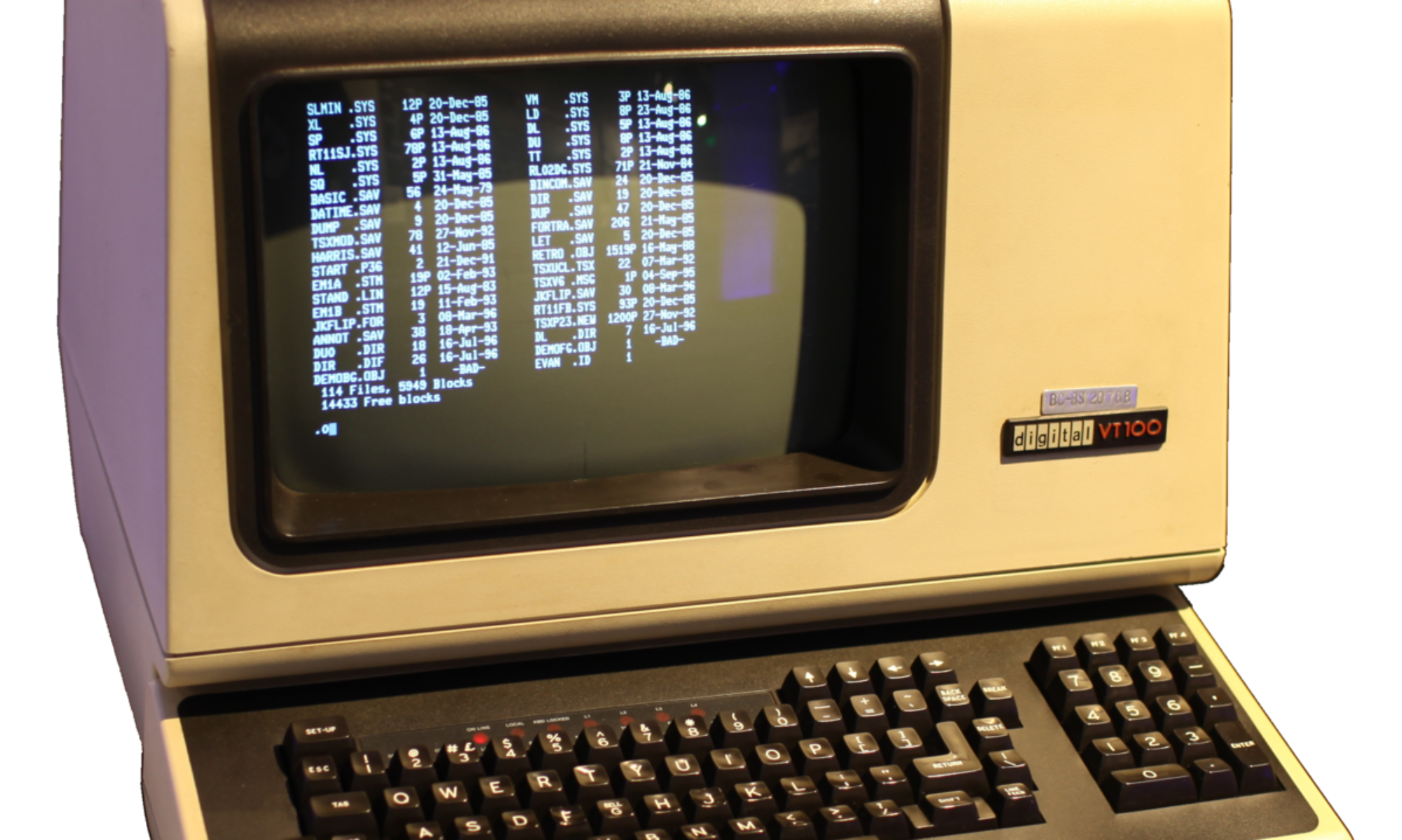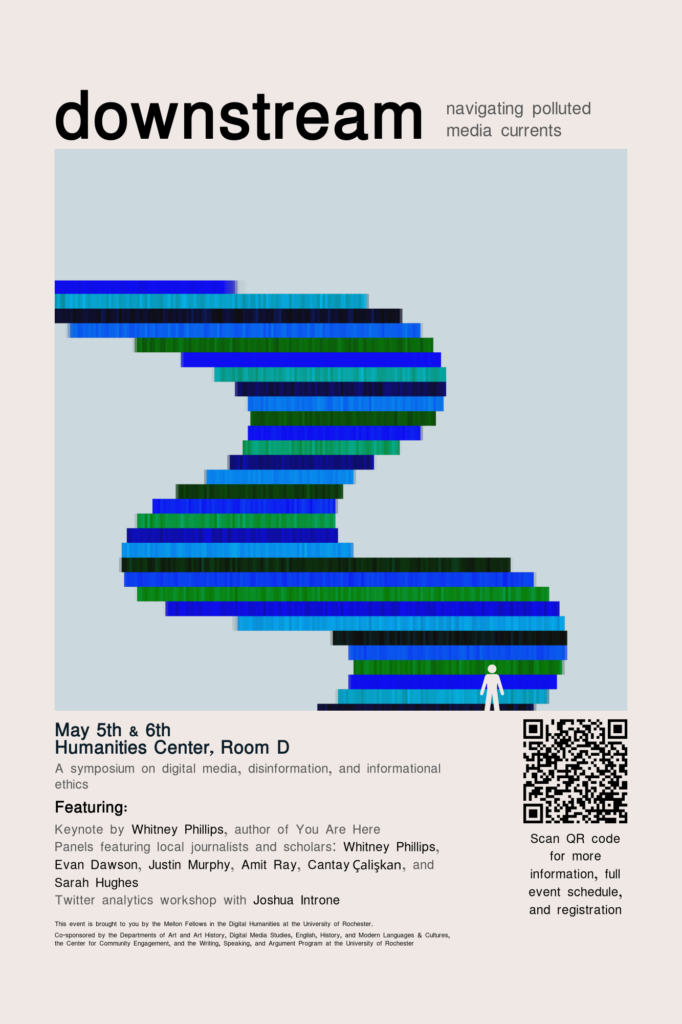Sarah is a PhD candidate in the Joint Program in English & Education at the University of Michigan, where she is also a Graduate Student Research Assistant with the English Department Writing Program, a member of the Digital Accessible Futures Lab, and a Sweetland Digital Rhetoric Collaborative Fellow. She has taught Developmental, First-Year, and Upper-Level Writing courses at U-M and various community colleges and universities in Ann Arbor and Chicago. Her research interests center digital rhetoric, gender and discourse, and gaming studies, and her dissertation project explores how women (used inclusively) use multimodal discourse—grammatically, narratively, and visually—to navigate online gaming ecologies.
Cantay Çalışkan
Cantay is an assistant professor of instruction at the Goergen Institute for Data Science at the University of Rochester. He studied political science, computer science, and statistics during his Ph.D., and received his degree from Boston University in 2018. Cantay received his BA from Brandeis University and his MA from Koç University. Before joining the University, he was a visiting assistant professor in the Department of Data Analytics at Denison University and a visiting assistant professor in the Department of Mathematics and Computer Science at Ohio Wesleyan University. His research interests include computational social science, emotion quantification and face/gesture recognition, social media, US Congress, and networks of lobbying.
Amit Ray
Amit is an Associate Professor in the Department of English at Rochester Institute of Technology. He is the author of Negotiating the Modern: Orientalism and Indianness in the Anglophone World. Dr. Ray’s current research examines the accelerating impact of new technologies on language and culture. He has been developing the concept of “autocolonialism” to explore how information and biological technologies transmogrify our late human condition.
Justin Murphy
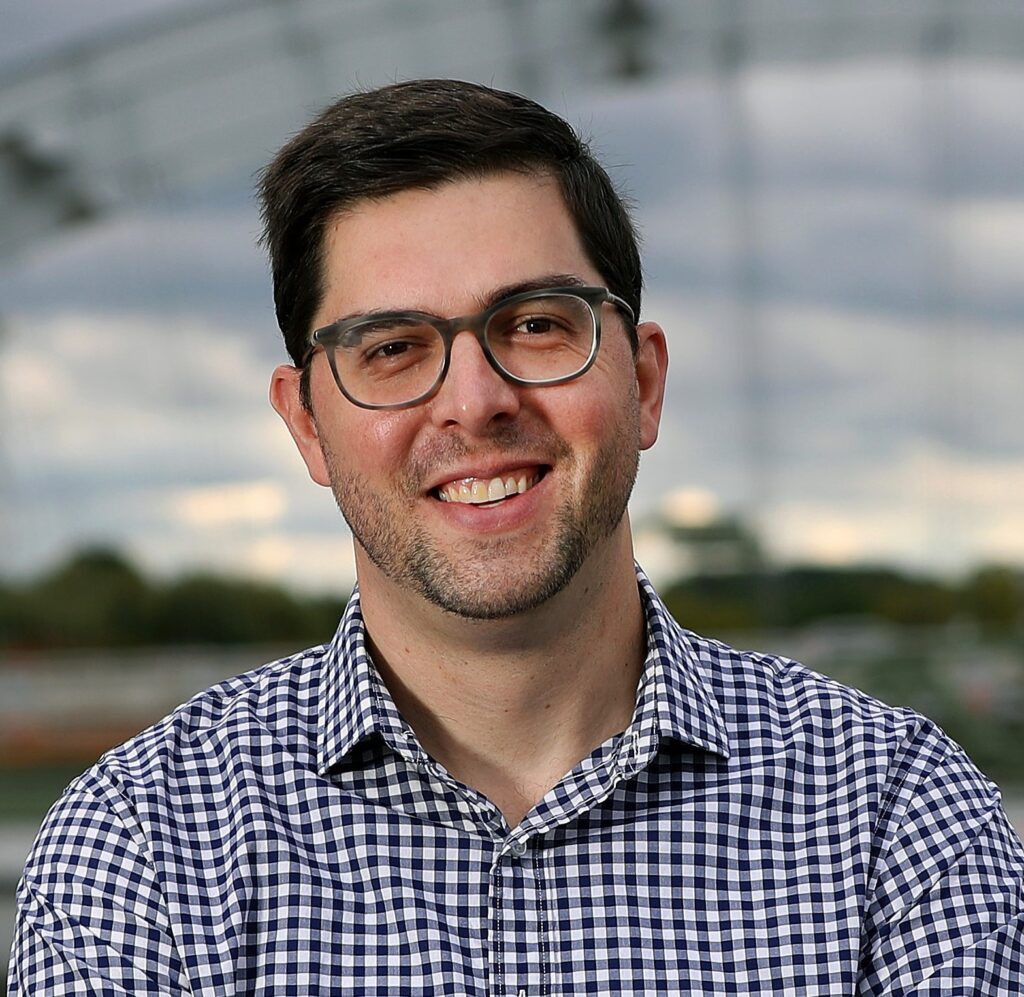
Justin Murphy is a reporter for the Democrat and Chronicle, covering education in the Rochester area with an emphasis on the Rochester City School District. He has worked at the Democrat and Chronicle since 2012 and before that was a reporter for The Citizen in Auburn, New York. He grew up in Penfield and attended the University of Chicago and the S.I. Newhouse School of Public Communications at Syracuse University. His book “Your Children Are Very Greatly in Danger” examines school segregation in Rochester. He lives with his wife and children in the Cobbs Hill neighborhood.
Evan Dawson
Joshua E. Introne
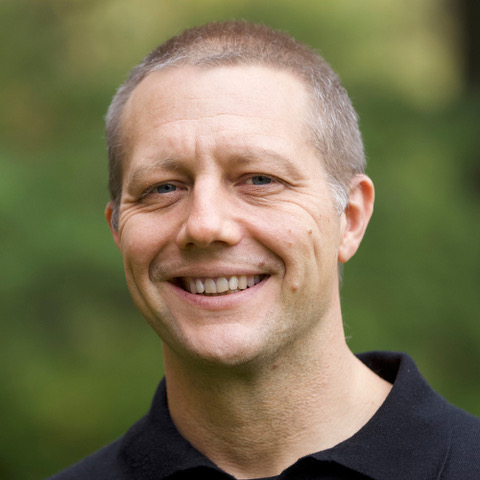
Josh is an Assistant Professor at the Syracuse University School of Information Studies. He received his Ph.D. in computer science from Brandeis University in 2008. Following his degree was a post-doctoral fellow and research scientist at the MIT Center for Collective Intelligence, where he served as chief architect for the MIT Climate Colab (https://www.climatecolab.org/). Josh studies collective intelligence in socio-technical systems. He draws on his training in cognitive science, human computer interaction, and computer-mediated group decision making to investigate how to design sustainable systems that benefit those who use them as well as society more broadly. He also draws heavily on complex systems theory to understand patterns of stability and change in socio-technical systems and focuses on both social dynamics and knowledge production in online communities. Much of his current work considers how social technology can influence the formation of peoples’ beliefs, and in particular beliefs that are motivated by misinformation.
Whitney Phillips
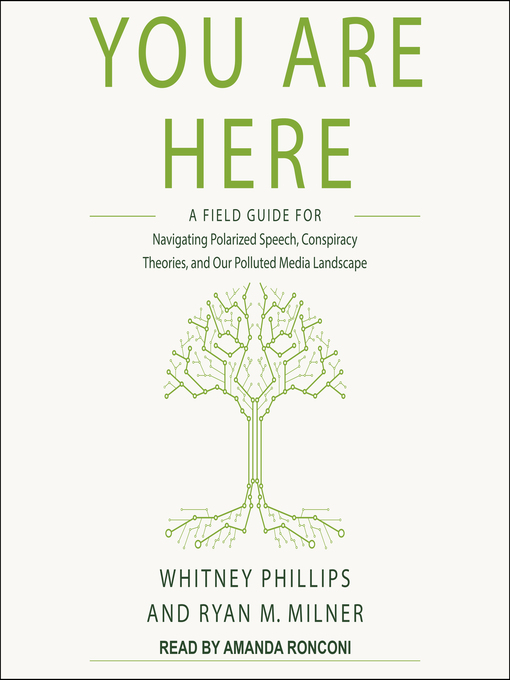
A scholar situated between the humanities and social sciences, Whitney Phillips draws from science and technology studies, critical theory, and media history to explore the context and consequence of mediated communication, with a focus on the ideologies, assumptions, and stories that shape what we observe on our screens. She is the author of several books on digital culture and politics. Most recently, she and Ryan M. Milner published You Are Here: A Field Guide for Navigating Polarized Speech, Conspiracy Theories, and Our Polluted Media Landscape (MIT Press, 2021), which they subsequently, and very loosely, adapted for middle grades readers. That book, forthcoming with Candlewick Press in early 2023, is titled Thinking Ecologically about Social Media. In the Fall of 2023, Phillips will be joining the faculty in the University of Oregon’s School of Journalism and Communication.
Downstream: Navigating Polluted Media Currents — A Mellon Digital Humanities Symposium with Whitney Phillips
A symposium organized by the Mellon Fellows in the Digital Humanities at the University of Rochester. Co-sponsored by the Departments of Art and Art History, Digital Media Studies, English, History, and Modern Languages & Cultures, the Center for Community Engagement, and the Writing, Speaking, and Argument Program at the University of Rochester
*All public events were held in Conference Room D, Humanities Center, 202 Rush Rhees Library
Downstream Symposium

Whitney Phillips and Ryan Milner’s 2020 book, You Are Here, offers an ecological framework for the understanding of digital media, emphasizing their interconnectedness and the ease by which “pollution” spreads across networks and communities. Noting the many historical and structural factors that led us here, Phillips and Milner argue that it’s now the users ourselves who must take an informed, ethical approach to our online activities and the effects they might have downstream.
Drawing inspiration from Phillips and Milner’s ecological metaphor for our current media landscape, the Downstream symposium brings together humanists, social scientists, and journalists to discuss this moment.
In the introduction to You Are Here, Phillips and Milner write: “The polluted-information frame allows us to table the question of intent and focus instead on how the pollution spreads, why it was allowed to spread, and what impact the pollution has both at the initial waste site and, later, downstream.” (5)
“Polluted information is as damaging as it is perfectly calibrated to our contemporary information ecosystem. It thrives when technological and economic systems function at peak efficiency. It thrives when platforms maximize user engagement. It thrives when publications pursue clicks. It thrives when everyday people do the clicking. It thrives when everything is working well—at least working well for some.” (You Are Here, 10)
While events like January 6 or the spread of conspiracy theories on COVID-19 have made our interconnectedness more apparent, the current situation is only an intensification of larger, systemic problems. After all, Phillips and Milner argue, “efficient systems have long yielded catastrophic outcomes.” Piecemeal solutions are not only ineffective, the authors contend, they also often exacerbate harm. The massively profitable corporations that own these social media platforms push automated moderation tools, promising to “innovate” their way out of the problem. Like the extractive industries’ wanton destruction of the planet’s ecology, their profits are contingent on the continued and increased circulation of these informational currents, whatever damage is done to the informational ecosystems in which we live.
The Downstream symposium is a gathering to focus on, and facilitate conversation about, media pollution as a problem that requires radical reformations to the way information flows. To do so, we must speculate on solutions while simultaneously attempting to “make sense” of the cacophonous and rapidly transforming maelstrom of information. The difficulty of this task is precisely what makes it absolutely necessary, because in the end, we’re all downstream, together.
